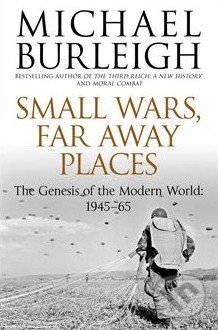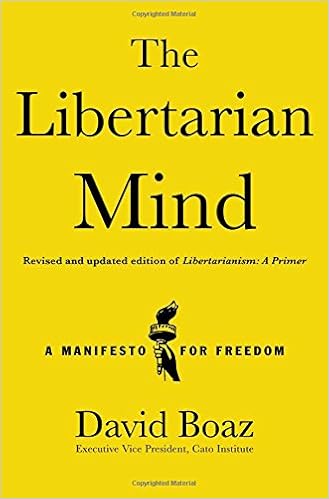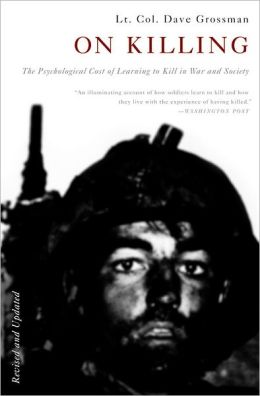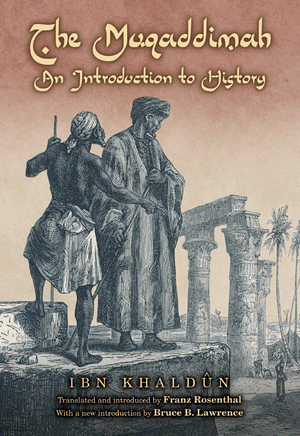A Plethora of New(ish) Books I.
[Mark Safranski / “zen“]











Goddess of the Market by Jennifer Burns
A Gentle Madness by Nicholas A. Basbanes
Small Wars, Faraway Places by Michael Burleigh
Warfare in Antiquity by Hans Delbruck
The Libertarian Mind by David Boaz
On Killing by LTC. Dave Grossman
Gulag: A History by Anne Applebaum
The Muqaddimah by Ibn Khaldun
In Denial: Historians, Communism & Espionage by John Earl Hynes and Harvey Klehr
The Restoration of Rome by Peter Heather
Excellent Sheep by William Deresiewicz
Nothing makes me happier than buying a new batch of books. So I did. In a large enough number to require two separate posts.
A Gentle Madness intrigued me, naturally enough, when I caught it years ago on the old C-Span Booknotes program, the book jacket mirrors the look of the old, fine press, book cover. Some of the authors, Burleigh, Boaz, Haynes and Klehr have written works I have enjoyed and already have on my shelf ( I used to be on a listserv with the last authors years ago in the pre-blogging era. Careful and smart scholars they were). On Killing is widely cited and remains controversial in military academic circles and two of the other books are classics.
I’m not reading any of these books at present. My time is currently occupied by with The Landmark Thucydides in preparation for the upcoming Thucydides Roundtable in October and also with Coming Apart by libertarian intellectual and gadfly Charles Murray (seemed appropriate given the election cycle).
What are you reading?



August 29th, 2016 at 2:36 am
Nice stack!
August 29th, 2016 at 2:58 am
Gracias! More to come…
August 29th, 2016 at 9:31 pm
I thought On Killing was forgettable. This is especially in light of the fact that the book was written pre-GWOT, so it’s probably reasonable to say that there some updated findings around.
.
I’m only speaking slightly ill of the book. It was groundbreaking in its own way.
August 30th, 2016 at 1:23 am
Justinian I: The Napoleon III of late antiquity
August 30th, 2016 at 11:24 am
Zen,
.
Impressive and interesting list. I ordered Gentle Madness; you’d previously posted a photo on FB.
.
Still reading Tacitus, The Histories. In Book IV, though the topic has me veering back to Mary Beard’s SPQR. I read SPQR on my iPad during a couple of long flights and very little memory of what I read. Not sure if this is a function of age or the medium, but I ordered the paper book and it helps with perspective.
.
Finished Cicero’s How to Grow Old over the weekend. His On the Orator made a strong impression on me as a young man, so having this little volume is something of a “closing of the loop,” as it were.
.
Also struggling through Theophany—recommended by Grurray after my last post. I hope to finish before the end of September, though at the current pace I’ll be lucky…
.
You will enjoy Delbruck, though I can’t hear his name without thinking of the late Gene Wilder in Young Frankenstein—and the “abby normal” brain used in lieu of “Hans Delbruck.”
August 30th, 2016 at 4:03 pm
I’m currently in the middle of Book 2 of Thucydides. Looking forward to the roundtable. Enjoying it, but keeping all the combatants straight is tough. No wonder Pericles didn’t want to engage them in a pitched battle.
Scott, thanks for the shoutout. I’ve got ‘Literature in the Vernacular’ sitting on my nightstand and hope to start it after Thucydides. I found another obscure (to me at least) theology tome called, ‘Unseen Warfare: The Spiritual Combat and Path to Paradise of Lorenzo Scupoli’ that I hope to read sometime.
Compiled and edited by Theophan the Recluse, who I was recently introduced to from this new journal, Another City:
http://anothercity.org/st-theophan-the-recluse-the-theoretical-mindset-quenches-love/
St. Theophan had a unique brand of Thatcherite Orthodoxy that we don’t see much of anymore in organized religion.
August 30th, 2016 at 5:23 pm
Ooh, Grurray!
.
You have the Orthodox version of Scupoli, then, translated by Kadloubovsky and Palmer — I have what looks like a Faber first edition, & smells a bit musty. Palmer also translated, with Phillip Sherrard, The Philokalia — do you know it?
.
Scupoli was a Catholic, and there are also Catholic versions — mine is published by TAN. The Orthodox version is far the finer of the two.
.
Ahem.
.
Very different is the concept of “spiritual warfare” as espoused these days by C Peter Wagner and his associates in the New Apostolic Reformation. As far as I know, Dr Ed Murphy’s The Handbook for Spiritual Warfare is the closest thing to an in-depth scholarly treatment of contemporary evangelical ideas on the topic, which in Wagner’s hands involves notions of “territorial spirits” and geographical “strongholds”.
.
Herescope, an evangelical apologetics outfit, has a fascinating account of an ascent of Mt Everest, and how:
.
There’s an enormous gulf between your Scupoli’s and Wagner’s version of spiritual warfare: one of these days, I’d like to map the difference in a little more detail.
.
But first the Middle East needs to simmer down, eh?
August 30th, 2016 at 9:29 pm
Charles, haha- too many hotspots in the world in need of your work.
.
I have skimmed the Catholic version. It’s my understanding that Theophan sprinkled his ascetic commentary into various places in his updated version. I’ve seen certain passages such as this one compared to Buddhist doctrine of non-existence of the self – http://tinyurl.com/he2d9um
“You, my mind, are not mine: you were given me by God. Neither are the powers active within me–will, with its energy–mine. Nor does my feeling, the ability to enjoy life and all my surroundings belong to me. My body with all its functions and requirements, which determine our physical well-being, is not mine either. All this was given by God. And I myself belong not to me, but to God.”
.
I haven’t read it (so many books, too little time), but I know the Philokalia from the Imiaslavie heresy and the fin de siecle Moscow School of Mathematics. I think we talked about this once. It’s amazing how some subjects are kind of static but others can be approached from so many different angles you could spend your whole life exploring them.
August 31st, 2016 at 1:29 am
The question of the Name of God is a fascinating one across all religions; I’ll have to dig into the Imiaslavie a bit, any pointers gratefully accepted. And I was reading something very similar to your quote in a paper on Ibn Arabi just yesterday — though the passage in question now seems to have vanished, and may have been written between the lines..
August 31st, 2016 at 1:45 am
Actually, Grurray, that “vanbishing” bit all sounds a tad too mystical — I was reading up on either the Kaaba, the kiswa which covers it, or qalb / lubb and the various meanings of the heart in Sufism, and probably read right past the paragraph in question a couple of times just now, looking for the wrong keyword and missing the bit I wanted to quote to you when it was right under my nose.
August 31st, 2016 at 2:48 am
Scott,
.
I liked Tacitus and I read Cicero’s the Republic and the Laws and also The Good Life but it was quite some years ago. Apparently I am quite remiss in not getting to Delbruck sooner. I also never started AzarGat’s War in Human Civilization despite it looming from the shelf for several years
August 31st, 2016 at 2:40 pm
Hi Grurray,
.
The Dante book is not what I expected, but parts are rewarding. For a slim volume, it required more time that I would have guessed.
.
Theophany has been tough—though I’m slowly making progress. Will definitely have to revisit my margin notes.
.
Hi Zen,
.
I have the Delbruck set, but have read only the first volume. Our mutual friend, Jeremy R. read this series when he was in his teens! He advises to read the small print, too! He still swears by the set, so what do I know? Books of this sort require a bit of dedication and a warming up to the style (at least for me). I read War Before Civilization and The Skulking Way of War earlier this year/late last year—both quite good, but the latter seemed to sum up the mechanics of combat more succinctly. I do not have the Gat book, but it looks interesting.
.
I’ve had a Latin self-tutorial set for almost ten years and finally added to the schedule. Interesting how Roman/Greek topics keep moving into my reading paths…That said, Tom Holland’s Persian Fire and Hale’s Lords of Sea provide good summations of Thucydides and Herodotus.
.
Peter Pouncey, who wrote one of the best fiction titles I’ve read, Rules for Old Men Waiting, also wrote a slim volume on Thucydides, The Necessities of War: A Study in Thucydides Pessimism which is quite good, too.